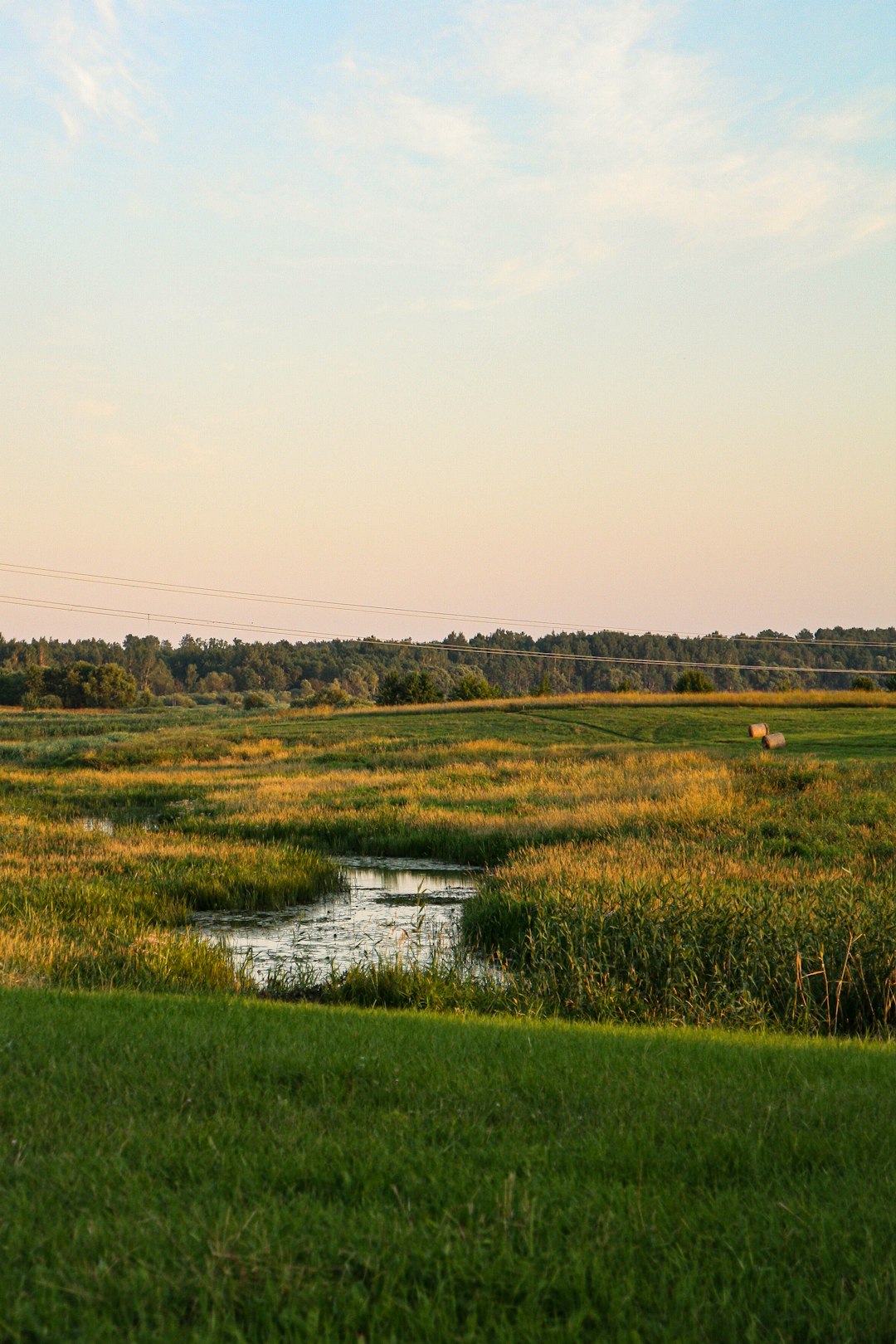

Market trends play a crucial role in determining the pricing strategies when selling Maine land. Understanding the current market trends can help sellers make informed decisions and maximize their profits.
Demand for Maine land is on the rise due to various factors such as its natural beauty, recreational opportunities, and potential for development. As a result, prices have been steadily increasing over the years, making it a lucrative market for sellers.
Location is a key factor that influences the pricing of Maine land. Properties located near popular tourist destinations or with waterfront views tend to command higher prices compared to those in more remote areas. Sellers should take into account the location of their land when setting the asking price.
Another important consideration when pricing Maine land is its size and topography. Larger parcels of land or those with unique features such as mountain views or river frontage are typically valued higher than smaller or less desirable properties. Sellers should highlight these attributes to attract potential buyers willing to pay a premium.
Competitive analysis is essential when determining the right pricing strategy for selling Maine land. By researching similar properties in the area and comparing their prices, sellers can gain valuable insights into market trends and set a competitive asking price that will attract buyers while maximizing profit.
In conclusion, staying informed about market trends and employing strategic pricing strategies are essential for successfully selling Maine land for cash. By taking into account factors such as demand, location, size, topography, and competition, sellers can optimize their chances of achieving a profitable sale in this lucrative real estate market.
Selling land in Maine can be a complex process, especially if you are looking to sell it for cash. Working with real estate professionals who specialize in land transactions can help streamline the sale and ensure that you get the best possible price for your property.
When selling Maine land for cash, it is important to enlist the help of real estate professionals who have experience in this specific type of transaction. These professionals will have a deep understanding of the local market and can provide valuable insights into pricing, marketing strategies, and potential buyers.
Real estate professionals can also help you navigate the legal and regulatory requirements associated with selling land in Maine. They can ensure that all necessary paperwork is completed correctly and that the sale complies with state and local laws.
In addition to their expertise, real estate professionals have access to a wide network of potential buyers who are actively looking for land in Maine. This network can help attract interested parties quickly and efficiently, increasing the chances of selling your land for cash within a short timeframe.
Overall, working with real estate professionals when selling Maine land for cash can save you time, reduce stress, and ultimately lead to a successful sale at a fair price. Their knowledge, resources, and connections can make all the difference in achieving your goal of selling your land quickly and efficiently.
Maine (/meɪn/ ⓘ MAYN) is a state in the New England region of the United States, and the northeastern most state in the Lower 48. It borders New Hampshire to the west, the Gulf of Maine to the southeast, and the Canadian provinces of New Brunswick and Quebec to the northeast and northwest, and shares a maritime border with Nova Scotia. Maine is the largest state in New England by total area, nearly larger than the combined area of the remaining five states. Of the 50 U.S. states, it is the 12th-smallest by area, the 9th-least populous, the 13th-least densely populated, and the most rural. Maine's capital is Augusta, and its most populous city is Portland, with a total population of 68,408, as of the 2020 census.
The territory of Maine has been inhabited by Indigenous populations for about 12,000 years, after the glaciers retreated during the last ice age. At the time of European arrival, several Algonquian-speaking nations governed the area and these nations are now known as the Wabanaki Confederacy. The first European settlement in the area was by the French in 1604 on Saint Croix Island, founded by Pierre Dugua, Sieur de Mons. The first English settlement was the short-lived Popham Colony, established by the Plymouth Company in 1607. A number of English settlements were established along the coast of Maine in the 1620s, although the rugged climate and conflict with the local Indigenous people caused many to fail. As Maine entered the 18th century, only a half dozen European settlements had survived. Loyalist and Patriot forces contended for Maine's territory during the American Revolution. During the War of 1812, the largely undefended eastern region of Maine was occupied by British forces with the goal of annexing it to Canada via the Colony of New Ireland, but returned to the United States following failed British offensives on the northern border, mid-Atlantic and south which produced a peace treaty that restored the pre-war boundaries. Maine was part of the Commonwealth of Massachusetts until 1820 when it voted to secede from Massachusetts to become a separate state. On March 15, 1820, under the Missouri Compromise, Maine was admitted to the Union as the 23rd state.
Today, Maine is known for its jagged, rocky Atlantic Ocean and bay-shore coastlines, mountains, heavily forested interior, and its cuisine, particularly wild lowbush blueberries and seafood such as lobster and clams. Coastal and Down East Maine have emerged as important centers for the creative economy, especially in the vicinity of Portland, which has also brought gentrification to the city and its metropolitan area.

Selling land in Maine for cash is a straightforward process, but it does require some careful planning and preparation.. The first step is to determine the value of your land by getting an appraisal from a licensed appraiser or real estate agent.
Posted by on 2024-03-10

Selling Maine land for cash can have a variety of values depending on your individual circumstances.. One of the most obvious benefits is the immediate financial gain that comes from selling a piece of property.
Posted by on 2024-03-10

When preparing to sell Maine land for cash, there are several important steps to take in order to ensure a smooth and successful transaction.. The first step is to determine the market value of your land.
Posted by on 2024-03-10

Selling land in Maine for cash can be a daunting task, but with the right approach and some helpful tips, you can make the process smoother and more profitable.. Here are some key things to keep in mind when selling your Maine land for cash.
Posted by on 2024-03-10
When selling Maine land for cash, there are several important legal documents that must be prepared to ensure a smooth and legally binding transaction.
Firstly, it is essential to have a valid deed to the property. The deed serves as proof of ownership and outlines the specific details of the land being sold. It is crucial that the deed accurately describes the property boundaries, any easements or restrictions, and any other relevant information.
Additionally, a Purchase and Sale Agreement should be drafted to outline the terms of the sale. This document typically includes details such as the purchase price, closing date, contingencies, and any other conditions of the sale. Both parties must review and sign this agreement before proceeding with the transaction.
Another important document is a Seller's Disclosure Statement. This document requires the seller to disclose any known issues or defects with the property, such as environmental hazards or structural problems. Providing this information can help protect both parties from future disputes or legal issues.
Lastly, it is recommended to work with a real estate attorney to ensure all necessary legal documentation is in order. An attorney can review contracts, deeds, and other paperwork to ensure everything is accurate and legally binding. Their expertise can help navigate any potential challenges that may arise during the selling process.
In conclusion, when selling Maine land for cash, having the right legal documentation in place is crucial for a successful transaction. By preparing deeds, agreements, disclosure statements, and working with an experienced attorney, sellers can protect their interests and ensure a smooth sale process.


When it comes to selling Maine land for cash, the timeline can vary depending on a variety of factors. However, there are some general guidelines that sellers can expect when going through the process.
The first step in selling Maine land for cash is to determine the market value of the property. This typically involves getting a professional appraisal or working with a real estate agent who specializes in land sales. Once the value is determined, sellers can set an asking price and begin marketing the property.
Marketing efforts can include listing the land on real estate websites, advertising in local publications, and reaching out to potential buyers directly. The goal is to generate interest in the property and attract serious buyers who are willing to make a cash offer.
Once an offer is received, sellers will need to negotiate with the buyer to come to an agreement on price and terms. This process can take anywhere from a few days to a few weeks, depending on how quickly both parties are able to reach a mutually beneficial deal.
After an agreement is reached, sellers will need to prepare all necessary paperwork and documentation for the sale. This includes things like deeds, title reports, and any other legal documents required by state law. Sellers may also need to work with a title company or attorney to ensure that everything is in order before closing.
Closing on a cash sale typically takes 30-45 days from the time an offer is accepted. During this time, buyers may conduct inspections or surveys of the property, finalize financing (if needed), and complete any other due diligence tasks required before closing. Once everything is in order, sellers will receive payment for their land and transfer ownership to the buyer.
Overall, the average timeline for selling Maine land for cash can range from several weeks to several months, depending on various factors such as market conditions, buyer interest, negotiation speed, and closing requirements. By understanding these steps and timelines involved in selling land for cash in Maine sellers can better prepare themselves for a successful transaction.
Selling Maine land for cash can have various tax implications that sellers should be aware of. Here are some key considerations to keep in mind:
Capital Gains Tax: When selling Maine land for cash, sellers may be subject to capital gains tax on any profit made from the sale. The amount of tax owed will depend on how long the land was owned and whether it was used for personal or investment purposes.
1031 Exchange: One way to potentially defer paying capital gains tax when selling Maine land is through a 1031 exchange. This allows sellers to reinvest the proceeds from the sale into a similar property within a certain timeframe, thus deferring taxes until a later date.
State Income Tax: In addition to federal taxes, sellers may also be subject to state income tax on the sale of Maine land. It's important to understand the specific laws and regulations in Maine regarding state income tax on real estate transactions.
Property Tax Reassessment: Selling Maine land for cash could trigger a reassessment of property taxes by local authorities. Sellers should be prepared for potential increases in property taxes based on the new value of the land post-sale.
Gift Tax: If Maine land is being sold for significantly less than its fair market value, sellers may need to consider gift tax implications. The IRS has specific rules around determining fair market value and assessing potential gift taxes.
Tax Deductions: On the flip side, selling Maine land could also lead to potential tax deductions for expenses related to the transaction such as legal fees, real estate agent commissions, and closing costs. Sellers should keep detailed records of these expenses for potential deductions.
Consult with a Tax Professional: Given the complex nature of taxes related to selling real estate, it's highly recommended that sellers consult with a qualified tax professional before completing a cash sale of Maine land. They can provide personalized advice based on individual circumstances and help navigate any potential tax implications effectively.


When you need to sell your Maine land quickly for cash, there are a few key strategies you can use to expedite the process and ensure a smooth transaction.
Highlight the Unique Features of Your Land When marketing your Maine land for sale, be sure to highlight its unique features and potential uses. Whether it's waterfront property, wooded acreage, or prime farmland, emphasizing what sets your land apart can attract buyers looking for those specific attributes.
Partner with a Real Estate Agent Specializing in Land Sales Working with a real estate agent who specializes in selling land in Maine can help you navigate the market and reach qualified buyers. These agents have experience in pricing land correctly, marketing effectively, and negotiating deals that benefit both parties.
Consider Selling to Investors or Developers If you're looking to sell your Maine land quickly for cash, consider reaching out to investors or developers who may be interested in purchasing your property for future development. These buyers are often willing to make fast offers and close deals quickly, making them ideal partners when time is of the essence.
Be Prepared for Negotiations and Due Diligence Once you've found a buyer for your Maine land, be prepared for negotiations over price and terms. Additionally, be ready to provide any necessary documentation during the due diligence process, such as surveys, title reports, and environmental assessments. By being organized and responsive throughout these stages, you can help facilitate a smooth sale that closes quickly.
When it comes to selling your Maine land, getting the best price possible is likely a top priority. Here are some tips to help you maximize your sale price and get the most value out of your property.
Research Comparable Sales Before listing your Maine land for sale, take the time to research comparable sales in the area. Look at recent sales of similar properties nearby to get an idea of what your land might be worth. This will give you a better understanding of the market and help you set a realistic asking price.
Highlight Unique Features If your Maine land has any unique features or attributes, be sure to highlight them in your listing. Whether it's waterfront access, timber resources, or proximity to popular recreational areas, showcasing these qualities can help attract buyers and increase the perceived value of your property.
Work with a Local Real Estate Agent Partnering with a local real estate agent who specializes in selling land in Maine can be beneficial. An experienced agent will have knowledge of the local market trends, pricing strategies, and potential buyers. They can also help you navigate the selling process and negotiate on your behalf to secure the best possible price.
Consider Improvements or Upgrades Making improvements or upgrades to your Maine land before selling can increase its appeal and value. Whether it's clearing brush, installing utilities, or improving access roads, investing in these enhancements can make your property more attractive to buyers and justify a higher asking price.
Be Flexible with Negotiations When negotiating with potential buyers, it's important to remain flexible. While it's natural to want top dollar for your Maine land, being open to compromises on price or terms can help facilitate a successful sale. Consider all offers carefully and be willing to adjust your expectations if necessary.
Market Your Property Effectively To attract interested buyers and get the best price for your Maine land, effective marketing is key. Utilize online listings, social media platforms, signage on-site, and other promotional tools to reach a wide audience of potential purchasers. The more exposure your property receives, the greater chance you have of securing a favorable sale price.

An agent can help negotiate deals and handle paperwork but is not strictly necessary if you feel comfortable managing on your own.
Yes, platforms like Facebook Marketplace or groups focused on real estate investing can increase visibility among potential buyers without hefty fees.
Selling during peak seasons (spring/summer) might lead to faster sales as more people are exploring outdoor opportunities during these times.